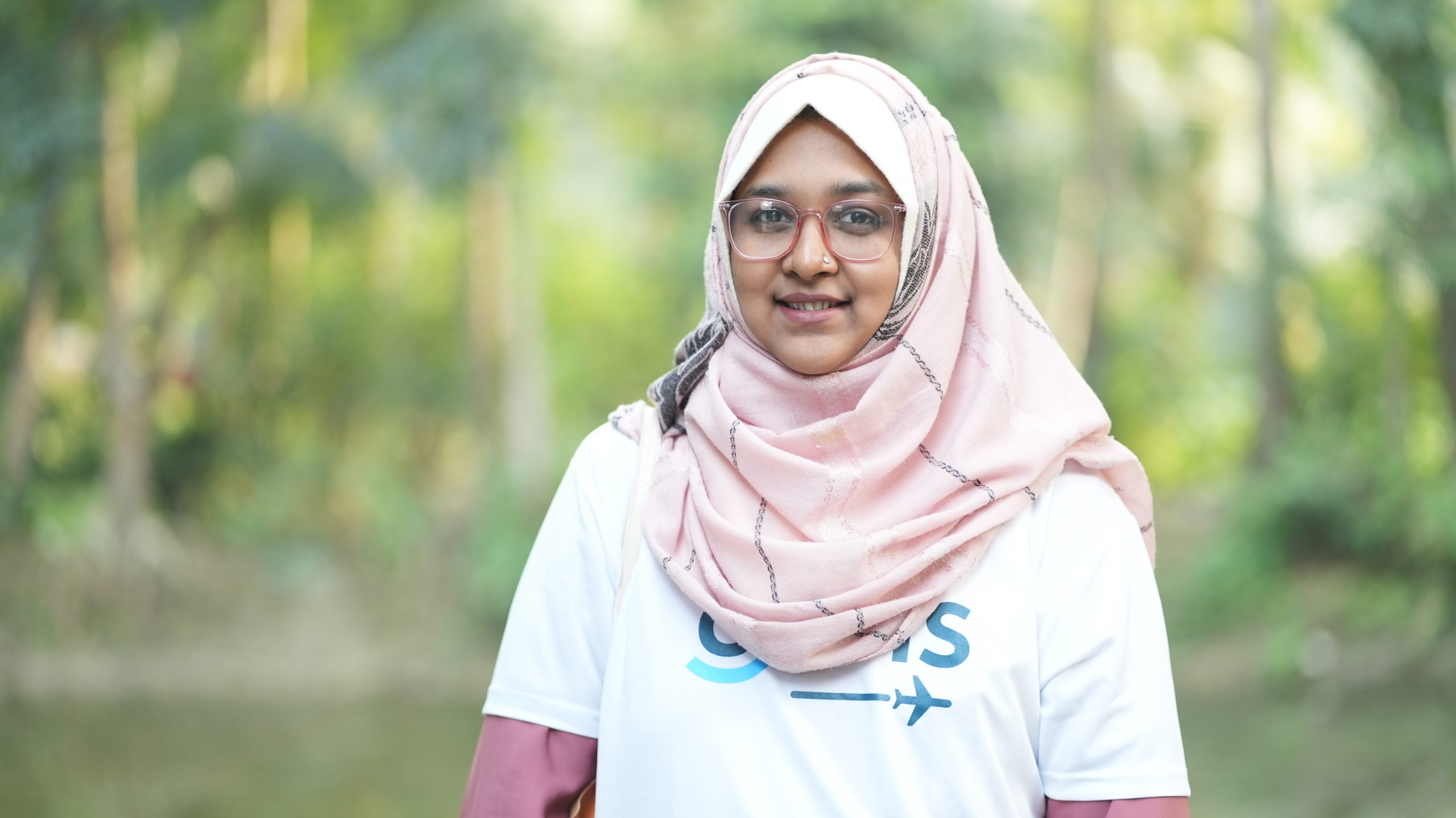Women-led eyecare tackles blindness gender gap

Tasmia received training from Orbis and runs a women-led green vision centre in the sub-district of Haimchar, Bangladesh
A lack of female health providers is stealing the sight of women around the world. On International Women’s Day blindness prevention charity Orbis warned women in low and middle-income countries are 12 per cent more likely to suffer from sight loss than men.
An estimated 55 percent of those living with vision loss are female – an extra 112 million people, according to the The International Agency for the Prevention of Blindness.
They are often more comfortable receiving treatment from women health practitioners for cultural or other reasons. Yet only 25–30 per cent of ophthalmologists are women, and 35–45 per cent of those in training.
But Orbis is tackling this desperate need. The charity has helped to train women to manage and run four vision centres in south-eastern Bangladesh, working with hospitals in Chandpur and Rangpur.
The community services are set up in remote, hard-to-reach areas, which suffer from an acute lack of access. They aim to provide eyecare for a combined population of 300,000.
More than half of the 73,000 people screened and treated in these vision centres in 2023 were women. These female-led services also empower women and girls through job creation and increasing financial independence.
Tasmia received training from Orbis and runs a women-led green vision centre in the sub-district of Haimchar, Bangladesh. She oversees vision services there and door-to-door eye tests: “Women-led green vision centres are important because women in these rural areas are not comfortable speaking openly with a man,” she explains. “When we do screenings, every woman and child feels comfortable sharing their problems. These open discussions help to provide patients with the proper treatment.”
In Chandpur district in Bangladesh, Orbis helps to operate the Shahrasti vision centre. More than half of the local population is living in poverty and 15 per cent struggle with vision loss. The centre provides hope to many in the community, including Anwara, from a small village.
She had been suffering from vision problems for several months but was unable to afford to see a qualified doctor. Then she heard about the women-led eyecare at Shahrasti she made an appointment.
Anwara recalls, “The doctor who tested my eyes was a woman. So, I didn’t feel shy and was able to express myself to the fullest. I was also able to speak with a well-known doctor in Chandpur via a digital platform.” She was diagnosed with a cataract in her left eye and scheduled for surgery.
Kate Gannon, head of programme funding at Orbis UK, said: “Training women to manage vision centres in rural Bangladesh removes the barriers of cost, distance and the time needed to travel to distant places.
“This makes it far easier for women and girls to gain permission to access these services and get treatment in their community by a trained female eye health professional. Vision centres that are women-led see many more patients per day.”
Anwara is just one of the many women Orbis is helping to reach their full potential through these programmes. Without sight, they are unable to stay in school, achieve economic independence and look after their families.
The charity is aiming to set up five more women-led green vision centres over the next two years in Rangpur, northern Bangladesh.
Find out more about Orbis’s work in Bangladesh here.